Text
Such a good idea about survelliance I havent even thought about that factor. In a situation as this, should the accused have privacy? You have people not wanting to show their faces and then names as well. L's character displays his caution while also wanting to keep survelliance on Light. Such a good case of "keep your friend's close and your enemies closer."
Death Note
Death Note was the first anime I ever watched, and it served as my gateway into the world of anime. What captivated me was its deep exploration of morality, justice, and the human psyche—and the intro is just sublime—the one I never skipped.
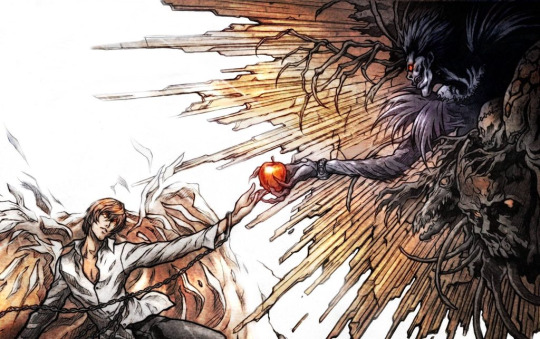
Death Note delves into the ethical complexities of absolute power. The protagonist, Light Yagami, a high-achieving high school student, stumbles upon a supernatural notebook that allows him to kill anyone by writing their name. Initially, Light's intent is to eradicate evil and create a utopian society. However, as he adopts the alias "Kira" and begins his crusade, his actions raise profound questions about the nature of justice and the corrupting influence of power.
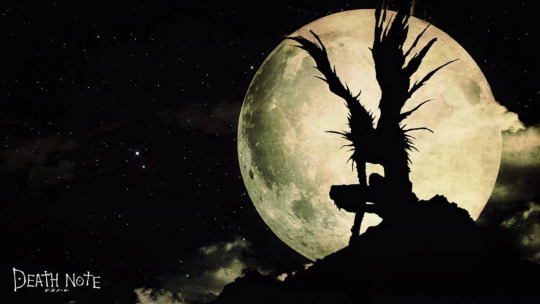
The series draws parallels to real-world issues, such as surveillance and authoritarianism. The world of Death Note can also serve as a metaphor for modern surveillance tools, questioning the ethics of privacy and the dynamics between the observer and the observed. Light becomes not only judge and executioner, but an omnipresent force of fear. This perspective underscores the relevance of Death Note in contemporary discussions about power and control.
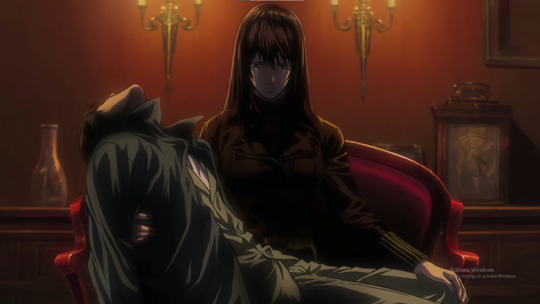
Death Note also challenges traditional notions of good and evil. The character of L, Light's nemesis, embodies a different approach to justice, relying on logic and evidence rather than supernatural means. Their cat-and-mouse game serves as a narrative device to explore the complexities of moral absolutism versus relativism—in a way that both characters are warped by a sense of justice that, in reality, is a product of their egos.
What’s especially interesting is how the Death Note itself functions almost as a deus ex machina, but inverted—it introduces divine power not to resolve the plot, but to create moral chaos. It offers godlike authority without godlike wisdom. And the Shinigami, especially Ryuk, deepen this point. Ryuk is a god-like being, but he doesn’t guide or punish. He watches with detachment. His refusal to interfere suggests a world in which divine presence is real but meaningless—one where gods are passive and humans, in their absence, try to take their place.
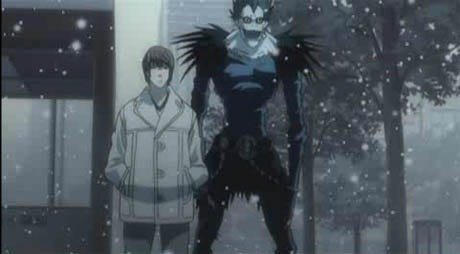
Light’s shift over the series mirrors a kind of corrupted deontology. He clings to a fixed principle—that criminals must die—but the principle serves his ego, not justice. He follows a rigid moral rule, but without empathy, humility, or accountability. It’s a cold, self-justifying system that becomes more about control than ethics.
Death Note transcends its genre by engaging with these intricate ethical and philosophical questions. Its exploration of justice, power, and morality continues to resonate with audiences and scholars alike, solidifying its status as a seminal work in anime and popular culture.
3 notes
·
View notes
Text
Death Note Analysis
This has always been one of my favorite anime's as well as one of my first in like 1st grade. I thorughly enjoyed rewatching this anime. It is interesting how the last few works such as Sensoron, Akira, Full Metal Alchemist Brotherhood, and now Death Note have all been built on is idea of power as well as morality. Inittially, Light Yagami represents going through the mundanity of life as a high school student he says "day in and day out the same thing over and over again." Yet, he still has ideals that the world is rotten even before recieving the death note. He quickly adapts ideals that say "if one or two people like him were going to die no one would care." He goes from killing someone holding hostages, to someone harassing a girl, to random people for his own agenda (the 12 agents he kills). Light is a person who seems to never be satisfied. Even while recieving the best grades, with a supportive mom who asks him if he wants anything, he responds he doesn't want anything at all. Which I find to be interesting as he gets no enjoyment it seems from anything else besides killing people with the death note. We see the joy he recieves from the death note and ridding the world of "rot" as he alreay has 2 pages filled of names before Ryuk even comes down into the human world. His intention is to create a world without eveil by doing something thats objectively evil in the eyes of society, murder. It creates an ethical question of whether murder is valid when it has to do with people who are not morally ethical in society throguh their crimes. Light thought he was chosen to be this "god of the new world" because he was smart, but it was simply based off of luck that Ryuk dropped the notebook there. He has a god complex and says "someone has to do it, In fact only i can do it" he believes he's truly a god of this new world he is trying to rid of "evil." Yet, this world is already tainted because he himself is commiting acts of evil in the process. This anime also deals with the ethical issue of the true intentions and feelings behind society. Light states that "of course humans would say it's wrong because they must put up a front like that in public. But their true feelings are there." If this happened in real life, I wonder how many people would support Kira's agenda as both kira and L both believe they're this idea of "justice" and "judgement" but in different ways. As mentioned before, the act of the death note dropping in the human world to Light Yagami is simply an act of luck. Yet, Watari and L both think if Kira was an ordinary person who gained the power to kill, he is very unlucky. The idea of luck is constant throughout the series it seems.

4 notes
·
View notes
Text
I also have a younger sibling and this anime made me reflect on what lengths I'd go to for them as well! The whole war part has been extremely real especially within the last few years. When you see headlines about innocent people dying and in the crossfire of a government's agenda it makes you really think about the ethics of war just for this idea of power.
Fullmetal Alchemist: Brotherhood
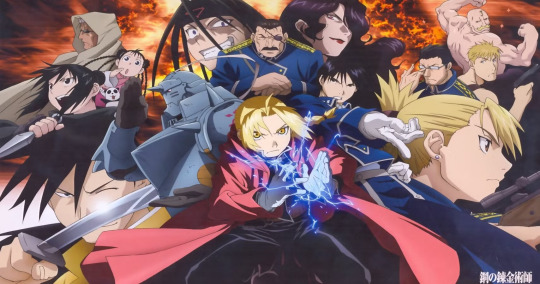
Hey everyone! 🌟
The story follows two brothers, Edward and Alphonse Elric. They’re alchemists, which means they can use science to change matter. After their mom dies, they try to bring her back using alchemy, but it fails badly. Ed loses his arm and leg, and Al loses his whole body. His soul gets attached to a suit of armor. They start looking for the Philosopher’s Stone to get their bodies back. As they travel, they find out their country is hiding dark secrets, and there’s a lot of danger around them, some of it coming from the government itself.
Political Greed
One thing that really shocked me was how the government used people just to stay in power. In episode 25, they destroy a whole city and don’t care about the lives they ruined. That made me think about how, in real life, leaders sometimes make choices that hurt people just to keep their control or make money.
Brotherhood
The bond between Ed and Al is one of my favorite parts. From the very start, you can see how much they love and protect each other. In episode 2, Ed risks everything for Al. And by episode 54, their trust and care for each other are even stronger. I have a younger sibling too, so I really felt connected to their story. It reminded me how important it is to be there for the people you care about, no matter what.
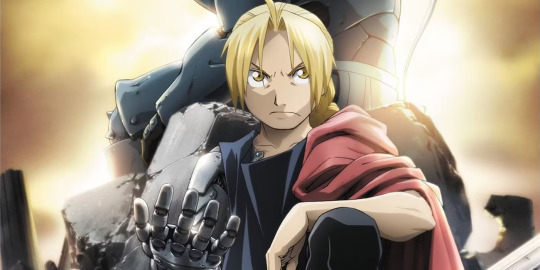
This anime has exciting moments, but also deep messages about power, family, and love. I didn’t expect it to be so emotional, but I’m really glad I watched it.
2 notes
·
View notes
Text
Full Metal Alchemist Brotherhood Analysis
At its core, FMAB is about dealing with loss, facing the consequences of your actions, and figuring out how to move forward when everything feels broken. The story follows two brothers, Edward and Alphonse Elric, who try to bring their mom back to life using alchemy. It backfires, Ed loses limbs, Al loses his body, and his soul gets attached to a suit of armor. From there, they set off on a mission to fix what they've done and find a way to regain their bodies.
What makes FMAB stand out is how emotional it gets while not focusing solely on battles or powers. The characters don't cry always or are expressive about their emotions, but you can feel it in the silence after scenes. The anime also looks at how power is used, who gets to have it, and what it costs (similar to Akira). The anime shows that alchemy is cool but it cannot fix everything. Some of the most dangerous people in the anime aren't alchemists, they are the ones in charge and use fear to stay in control. The anime doesn't hold back from pointing out how systems of power can become corrupt and how people in charge sometimes hurt others just to keep their position. When looking at Greed's character he starts selfish and obsessive. However, over time, there is character development as he learns what it means to care for other people.
Then there's the war narrative. The show doesn't shy away from showing how senseless war can be. The Ishvalan genocide is a turning point in the series and highlights how people (especially those in power) can justify horrific actions through ideology and the hunger for power.
Overall, I really enjoyed this anime as I've previously watched most of it and liked rewatching these episodes. In the end, the anime is about growing up, taking responsibility, ethics, and figuring out what kind of person you want to be in a world that is objectively unfair.
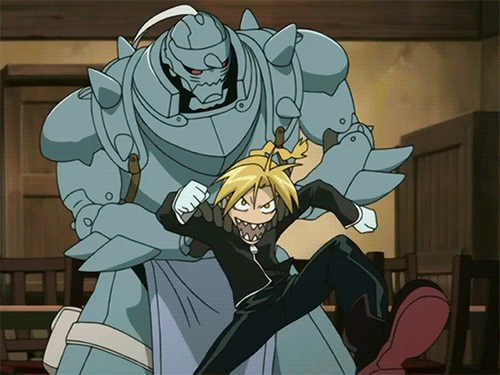
6 notes
·
View notes
Text
The pressure that is put on these kids is extreme, and we similarly noticed that in NGE. I also like the fact that you mentioned the city looks advanced technologically, but is just filled with poverty. I feel that we can make that connection with allot of places in reality. Countries present themselves as clean, nice, technlogically advanced, yet there are many people who are homeless or in poverty that they essentially try to hide.
Akira
I felt like this anime was different from anything we have watched. It has a heavy atmosphere, a messy world, and a tone that never really tries to comfort the audience. The story builds fast, but it does not explain everything. You just get thrown into the chaos of Neo-Tokyo, and somehow it works. What stood out to me first was the way power is treated in this anime. Tetsuo goes from being weak and insecure to gaining power so intense that it completely breaks him. His transformation is scary but also kind of tragic. He has always felt small and ignored, so once he gets this power, he refuses to let anyone control him again. The problem is that he does not know how to use it. Instead of becoming free, he becomes something uncontrollable. The anime shows that power without emotional maturity only leads to destruction. Another strong theme is how this world treats youth. The government experiments on kids. The police beat teenagers in the street. Adults either try to control or ignore them. Everything feels broken, and the younger generation is left to deal with it. This connects to real concerns about authority, especially in how the system reacts with fear and violence instead of care. Kaneda’s group is reckless, but they are just trying to survive in a world that already gave up on them. There is also something about memory and trauma running under the surface. Neo-Tokyo was built on the ruins of disaster. Everyone is pretending like life moved on, but the cracks are everywhere. The city looks advanced, but it is also filled with poverty, protests, and corruption. Tetsuo’s powers feel like the return of a buried trauma that was never actually healed. The animation is intense. Every frame feels alive. The city looks gritty and real, but the psychic scenes are surreal and disturbing. I can see why this anime had such a big influence on later works. It is not just about style. It is about fear, collapse, and what might rise after everything falls apart.
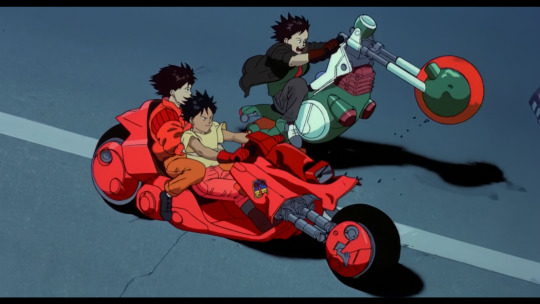
6 notes
·
View notes
Text
Akira Review
What struck me first was the aesthetic. Neo-Tokyo is this gorgeous nightmare, all neon grit and sprawling decay. The city feels alive like it’s breathing with its lungs, choking on the consequences of its past.
But beneath the explosions and body horror is something human. Kaneda and Tetsuo aren’t just rebels and psychic weapons; they’re lost boys. Tetsuo, especially, is a kid constantly overlooked, who finally gains power and is consumed by it. Instead of setting him free, it just makes everything worse. He spirals so fast. He's angry, scared, and constantly trying to prove he’s not weak anymore. It’s like the second he gains control, he can’t stop trying to destroy everything that made him feel small. Their dynamic is so real, especially at this time for anime, two kids trying to deal with stuff way bigger than them, and unequipped to handle it. Also, shout out to Kei and Kaori. They don’t get as much focus, but they’re still interesting, especially Kei. She’s trying to fight for something bigger, but she’s also just caught in this huge mess of power and destruction. It’s not just a sci-fi trope; it’s a reflection of real-world frustrations, of how societies fail their youth, especially the marginalized ones.
There’s this constant theme of instability (political, personal, biological). The government is corrupt, the military is grasping for control, and the kids? They’re stuck in the fallout. Literally and metaphorically. Akira asks essentially what happens when you give power to someone who’s never had any.
I also noticed how Akira critiques technological obsession and national trauma. The post-WWII anxiety is baked into every frame. The fear of unchecked science, of cities being leveled, of bodies mutating beyond recognition.
Honestly, it’s overwhelming but in the best way. I didn’t “understand” everything, but I don’t think I was supposed to. I had a similar experience with NGE and found many similarities between the two. Yet, the grotesque nature of the film also reminded me of Barefoot Gen with certain scenes.

3 notes
·
View notes
Text
I completely agree. As a society, we've always tried to evolve, especially regarding technology and methodology. We always want the newest phone, the newest cars, and companies and corporations push to be more innovative. However, this innovation hurts society, whether that's giving people newer addictions, making more of a social hierarchy, or even affecting the planet negatively.
Senseron
One of the things about Sensoron that stood out to me was how it emphasized repetition. The idea that war never changes and it doesn't just happen once, or just because a war is "over" it doesn't mean its over. This point also ties into what Gellner said about war itself. He talks about how it evolved and how the reason for war also evolved. What once was something done as a last resort for survival became suddenly a lot more political, it became about borders, control, ideologies. Normally when we think of progress its a good thing. The industrial revolution led to such a big boom in technology and its true there have been a lot of good almost near essential things that came from it (god bless the internet and A/C), but there also has been a downside. Weapons have evolved, methods of mass destruction and hurting other people. Its a double edged sword and its not something you can exactly stop. We as humans are naturally innovative people you can't stop the development of these things, and then theres the problem that if we don't do it someone else will. Though it begs the question as to when does technology go too far. If we make weapons that can literally destroy the world, which we pretty much already have in the form of nuclear bombs, how much worse can it get?
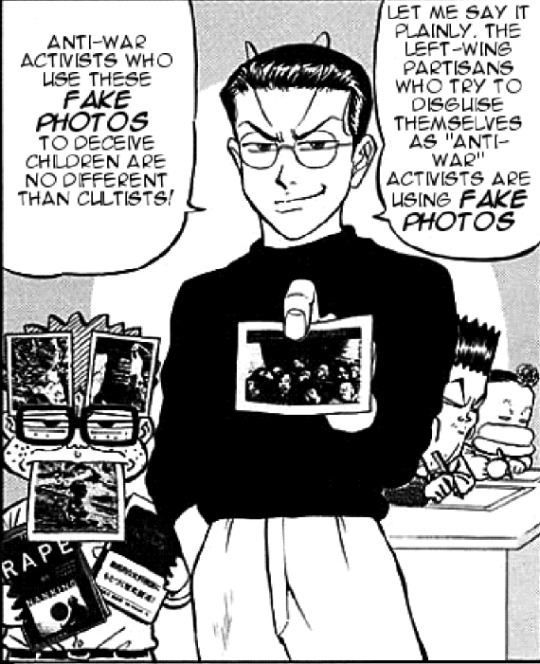
5 notes
·
View notes
Text
Sensoron Analysis & Review
This manga initially presents itself as a patriotic reflection on Japan's history but it becomes far more poltiical and crafts a selective and emotionally charged retelling of World War II that attempts to rehabilitate Japan's image. This revisionist framing doesn't jjust distort history, it actively undermines broader effort to onfront the darker aspects of the past.
One of the most surprising things is how the manga idolizes Japanese soldiers. They're portrayed as selfless heroes defending their nation, while modern Japanese society is criticized for being weak and overly individualistic. This glorification completely disregards the suffering experienced by civilians in countries affected by Japanese imperialism. The manga doesn't just minimize those experiences, it completely erases them. Gellner argues that nations are built through shared symbols and myths, not natural identities. Sensoron reads like an attempt to construct a national myth, favoring pride over accountability. The manga uses carefully chosen narratives to build a sense of collective identity rooted in heroism while omitting the voices of the people who were harmed.
The mangaka criticizes modern activists for discussing wartime atrocities, arguing that people who weren't alive during the war can't fully understand it. YET he wasn't alive then and still uses his voice to create works of his interpretation of the art. He denounces individualism, yet pleads with readers not to judge the entire Japanese military for the actions of a few individuals. He does this while also not having an issue generalizing other societies (Americans and Europeans) and describes them as morally weak and selfish which I find funny. The manga tries to debunk atrocities and present them as historically dishonest and can be deeply offensive to the memory of the victims. It uses actions and comparisons to deflect rather than reflect on their actions.
So while the manga may present itself as a meditation on national identity and war, it almost functions more as propaganda, prioritizing national pride over historical honesty.

1 note
·
View note
Text
I completely agree that it ends up helping them out. I thought it was pretty funny that it helps get him a date! I like how in this anime, we can see the benefits and disadvantages of gender performativity and going against norms. Very good examples! :)
Your Name -- General Thoughts + Analysis

What a fascinating anime! The visuals were beautiful and the plot was great. I'm not quite sure I understood this week's reading so I'm just throwing out a couple analyses based more on older themes.
There's obviously a bit of a gender commentary going on here, in my opinion. Taki and Mitsuha swap bodies, and other characters note that in that time frame they seem to behave more masculine/feminine. This causes some problems (Taki causes a rebellious scene in Mitsuha's body, and Mitsuha is yelled at for speaking too softly in Taki's body) but in some respects, it actually comes to help them both out. Mitsuha is able to experience some freedoms in Taki's body and Taki's masculine performance helps her seem more confident and defends her from bullies, whereas Mitsuha's feminine performance helps Taki come off as kinder to the people it really matters to (which scores him a date!).
To me there's a narrative here in terms of gender commentary that sort of shows there's power in embracing both the masculine and the feminine. It all really comes to heed in the finale, where Taki's masculine assertiveness in Mitsuha's body helps to begin the mobilization to save the town. This assertiveness does not quite click with Mitsuha's father, and Taki wonders if he handled things like she might've, if things would've worked out better. He swaps out control to Mitsuha, who finishes things off and does seemingly convince her father to help. This combined with their prior cooperation seems to link them, and shows that different performances hold more power in different scenarios.
2 notes
·
View notes
Text
Your Name & Power
This was my second time rewatching this film and I've always been in love with the story and animation style especially. However, I was a bit confused trying to connect this to Foucault's text but I will try my best! Foucault’s conception of power as something dispersed, embodied, and constantly negotiated. When Mitsuha and Taki begin to switch bodies, they are thrown into a reality where their sense of self becomes unstable. The phenomenon is not caused by a villain or explained by a straightforward force of control, it simply happens.. This reflects Foucault’s idea that power isn’t something possessed by a sovereign entity or imposed from above but something that emerges from relationships and is exercised across a network of interactions. Taki and Mitsuha don’t fight the power that shapes their lives; instead, they adapt to it. They leave each other notes, create rituals, tie ribbons into hair, which are strategies of navigation within a shifting, relational field of power.
Gender, too, is discussed in this context. As Mitsuha is in Taki’s body and vice versa, they engage in subtle acts of gender performance — walking differently, speaking with a new tone, and modifying their appearance. When Mitsuha-in-Taki’s body ties her hair back with her own red ribbon, it’s an assertion of identity. Foucault argued that identity isn’t a fixed essence but the product of ongoing power relations and performances. Mitsuha and Taki’s transformations do not undermine their selves; they highlight how gender and embodiment are sites where power operates and is resisted.
Language and memory also play a crucial role. The scene where Taki tries to write his name on Mitsuha’s hand but instead writes “I love you” is more than just an emotional scene; it’s a refusal to participate in the logic of identification and categorization. Sort of like Butler's article on gender performativity or the articles about queering and fitting into "nontraditional" masculinity roles.
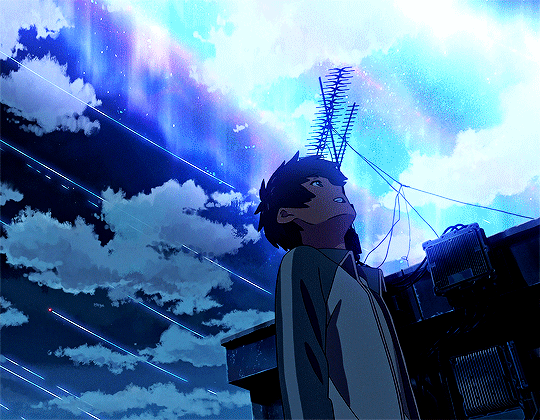
2 notes
·
View notes
Text
I like the point that no real progress is made. I feel like the childish, funny, satirical nature of it made me forget that this is a real depiction of reality. I agree that it's sort of a sanitized person but I think they cared about database consumption more than historical facts.
Hetalia Axis Powers Ep1-19 -- General Thoughts + Analysis

I think if you've been on the internet long enough, you've heard of Hetalia. So this was my push to finally take a gander into what the grand internet phenomenon of this show is. I think I have some pretty mixed opinions; it was pretty funny at some points, but I think I got a bit of a headache from how rapid fire the bits were. Probably a show best consumed periodically, not so much all at once.
Onto the analysis -- the most obvious aspect of Hetalia is that it's a big satire. Countries are embodied into these little characters, and in turn these characters are all walking stereotypes. The show pokes fun at every nation: Italy is a coward who loves pasta, America is egotistical and always eating unhealthy foods, Britain has bad food, China is an expansionist, Germany is cold and serious, etc. Most of the show is a series of bits centralized around world history/conflict. I think there's something to be said within the satire -- the countries constantly sit around bickering or training but nothing ever really gets done. The axis powers sit around a fire on a beach for several episodes, the allied powers argue over plans in a board room, and there's even an ongoing thing where the episodes keep teasing "America cleaning out the closet", and yet its just the same thing over and over. There's obvious satire here about the fact that the world is constantly a stage for countries fighting or forming alliances, but no progress is ever made. I think the stereotypes lend a hand in this, in the way each country performs how others view them, and its these stereotypes that prevent things from happening.
Fascinatingly enough, I found at some points it was a little educational. There were tidbits snuck in within jokes about actual historical fun facts and war history. There seems to be more of these informational bits for other countries, not so much Japan, which I suppose makes sense for the intended Japanese crowd watching.
My only criticism really was that I definitely feel the show is a very sanitized telling of the history it's trying to present. I suppose you kind of have to if you're doing a comedy show; the actual history of WWII is pretty upsetting. Unlike the other wars mentioned in the show, the set-up and major aspects of WWII (which is arguably even more important since its the backdrop of the show) are kept very vague.
Ironically enough, I think my favorite character was America. Maybe I just love trope characters that are "American stereotypes", I'm not sure why.
2 notes
·
View notes
Text
Hetalia Axis Powers Review
This anime was pretty enjoyable and quite funny. Honestly, surprised if this anime hasn't created any controversy because of their depictions. Italy is a precious disaster, all he wants is pasta, white flags, and hugs from Germany, he embodies this himbo sort of personality. Germany is an emotionally repressed drill sergeant with a heart of gold (layered 12 layers deep). He's always yelling, cleaning, needs a nap, and honestly therapy. Japan is quiet and mysterious but seems to have interests hidden below the surface level. America is loud, obnoxious, and probably puts ketchup on sushi yet somehow is endearing? England is a tsundere warlock gremlin man. He constantly argues with everyone but would probably cry if someone said they liked his cooking. France is the flirty wine uncle, possibly immortal. He speaks only in innuendo and judgment and has issues with England that are older than the sun. Russia is terrifying, soft voice, and dead eyes, calls people "comrades" before emotionally annihilating them. China gives me sort of oldest sibling vibes, sick of everyone's nonsense.
Also, plot?? What plot? This show is a collection of loosely historical fever dreams. It'll go from Let's learn about the revolution or Treaty of Versailles to looking at Chibi Italy fall into a tomato box. This anime goes against the grand narrative idea completely The anime mainly focuses on character's personalities and interactions rather than having one focus. Database consumption is prevalent throughout this anime. How some characters have repeatable traits and the anime focuses on characters rather than an overarching story. Hetalia makes it clear how communities are formed across gender and nationality. The anime conveys historical topics through sarcasm and stereotyping and this is recognized transcultural fandom. I can't say how true or false this anime's depictions are of the characters. I've seen a bunch of Yaoi art for a while of this anime but this time was the time I finally decided to indulge in the anime itself (thoughts of Yaoi not included). I enjoyed it and thought it was quite hilarious even with its downplaying of historical atrocities.
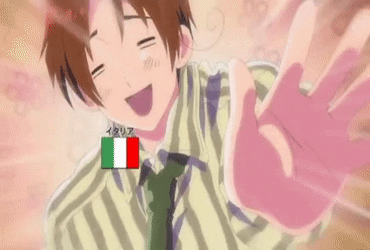
1 note
·
View note
Text
How was this game? I've been considering playing it before this class and the cutscenes make me really interested on how the playthrough of the game is. With Cobb's explanation i wonder what would make the entire world and non-climate change believers believe that it is real. Will it not be until the world collapses from our actions? I'm hoping we make the choice to change our mindset and as you said, respect that remains. Great points! :)
Xenoblade Chronicles 2
I just played this game recently, and I am so surprised we will watch the plots of this game. This game’s story begins in a world shaped by loss. The land of Alrest floats across a sea of clouds, where humans survive on the backs of massive Titans that continue to age and collapse. These Titans are not only carriers of life but also reminders that the world is slowly coming to an end. People cling to hope. They search for a myth called Elysium. Most do not know what Elysium truly is. They only believe that something better waits beyond the ruins.
Rex, the main character, begins with a simple dream. He wants to help others. He does not seek war or power. He finds Pyra, a Blade who awakens from a long sleep. She carries a power from the past. She also carries another self, Mythra, who remembers more of the truth. Together, they search for a place that might not exist. Their journey brings them into conflict with nations, weapons, and people who fear what Pyra and Mythra represent. They are not just symbols of strength. They are symbols of everything the world has forgotten.
This story does not follow the path of victory. It shows how the desire to control leads to collapse. The Titans continue to fade. The people continue to fight. The Blades continue to be treated as tools. The cycle repeats. Cobb’s reading about the Anthropocene helps explain why. He describes a world where humans separated themselves from nature. They replaced care with conquest. They chased improvement but ignored the cost. This same pattern appears throughout the story. The characters reach for power. They try to fix what was broken by using the same force that caused the damage. The more they try to take, the more they lose.
Cobb believes that change requires something deeper. Not invention. Not domination. A shift in how people see the world. This story supports that idea. Nothing improves until the characters begin to see their role in the suffering. The answers do not come from forgotten science or legendary places. They come from accepting that the past cannot be undone. The future cannot be reached through denial. It can only begin through a new way of living.
The ending does not solve every problem. It offers no easy conclusion. The world remains uncertain. The people remain scarred. But there is something left to hold onto. A choice to rebuild. A choice to carry memory with honesty. A choice to live not by controlling the world but by respecting what remains. That is what gives this story its meaning. That is what lingers after the journey ends.
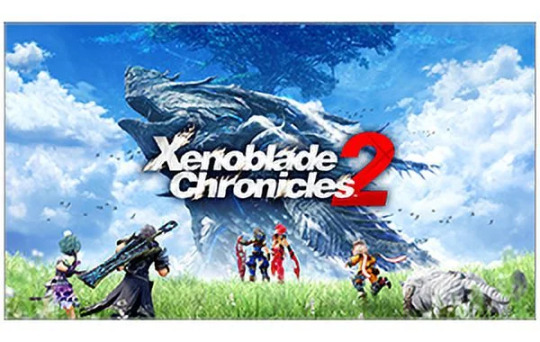
4 notes
·
View notes
Text
Xenoblade Chronicles 2
I went into Xenoblade Chronicles 2 expecting a fun fantasy JRPG with cool swords and yeah, it has all that. But what I didn't expect was how devastatingly real it would get with its themes. After watching Nausicaa Valley of the Wind, I found myself thinking more about climate change, exploitation, and the whole "what are we even doing as a species" thing.
The world of Alrest is made up of these giant living Titans that people live on but they're all slowly dying. Sinking into the Cloud Sea and no one knows how to stop it. Every cutscene reminds you: that the lad is disappearing. People are running out of space, resources, and hope. The slow collapse isn't just a part of the scene but the main problem everyone's trying to survive.
Cobb writes about how humans, unlike every other species, live beyond natural limits. We don't adapt to nature, we remake it. But power has a cost. We've pushed ecosystems to the brink and now we're not sure how to live in the world we've broken. What Xenoblade 2 gets right is the idea that when nature collapses, everything else does too. Politics, society, identity. The nations in Alrest are clashing because the land itself is shrinking. It's the same story Cobb tells about modern civilization pushing past limits, ignoring that nature has limits, and now scrambling to hold itself together. Additionally, the Blaes are sentient beings with memories, emotions, and tragic fates. They get used and reused, sometimes with care and sometimes just for power. It's an allegory for nature. They're resources and people. The way we treat Blades says everything about how we treat the world and each other. Schimelpfenig talks about how we've bought into a worldview that treats nature as something to use, not something we're a part of. The strongest characters are the ones who bond with their blades, not control them. It's Merleau Ponty's philosophy in action, we're not observers of nature, we are nature, and the split is a lie we've told ourselves.
With Elysium, what if we're chasing it the same way we chase Mars or post-apocalyptic survival fantasies because we've given up on Earth? Cobb warns us that faith in heroic science is just another illusion. We think we can fix the planet's carbon capture, electric cars, etc, but it's the mentality that needs fixing.
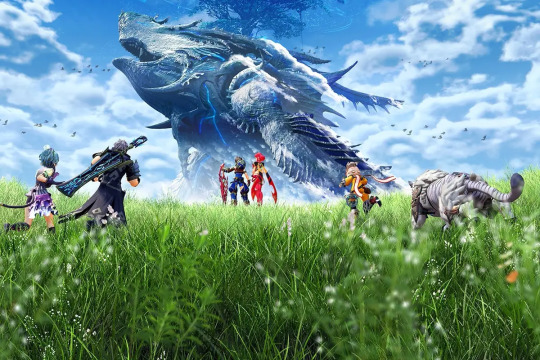
6 notes
·
View notes
Text
Chernobyl is sucha good point and comparison to this! That's so interesting, I wonder how long the birds survived and how that enabled them to not be able to do the simiplist tasks. I also love the older animated films and I thought this anime was animated perfectly for the theme. I wonder because of the declining state of the earth will everything we've polluted or harm will ever physically fight back in other ways other than climate change.
Nausicaa: Valley of the Wind -- General Thoughts and Analysis

The visuals in this anime are stunning! It's honestly something to be expected of any Ghibli film, but I find so much charm in older 80s/90s animated films and their painted backgrounds (and some foreground creatures).
I'm keeping things brief for this one as I feel it's quite straightforward. The movie's two most obvious themes are those of anti war and pro environmentalism, and how those themes sometimes intertwine. It's from nuclear war that the dangerous jungle that destroys lives for thousands of years is born, and war itself is a vector for which Nausicaa fights for both the jungle and her people.
I particularly found the reveal that the toxic jungle isn't toxic because of the plants, but rather the polluted soil, fascinating. I think there's a thematic here on how nature often springs back and survives in the harshest environments (created by humans); it was humans that polluted the soil via nuclear warfare that surely wiped out a good portion of ecology. And yet, life finds a way back in the form of unique new creatures, giant insects, and sporing plants/fungi. It does remind me a lot of places like the Chernobyl exclusion zones; overgrown deserted places once inhabited by human life, now inaccessible due to toxic radiation that should last for years... and yet nature seems to be doing just fine there, sans the occasional radiation-induced genetic mutation (I believe there was an incident with some birds being born with lethally strangely shaped/brittle bills?). Regardless, the point is that although yes, war causes destruction to the environment, the environment often finds its way back in strange ways, usually in a way that seems to fight back against the beings who originally messed it up.
2 notes
·
View notes
Text
Nausicaa of the Valley Wind
Professor Smith discussed this anime for a brief moment during his talk regarding Kabuki. He talked about masculinity and Nausicaa sort of defying normal feminine performativity. Nausicaa herself is such a radical figure. Not because she's super cool in armor or wielding insane power but because she's brave enough to be gentle. She chooses empathy over and over even when it hurts. Even in the last scene as the ohmu tries to go into the water she lets herself be burned by the acid to save this creature. At first, they're terrifyingly huge. But they have emotions and their eye color reflects this. Red when enraged, and blue when calm, which reflects how misunderstood they are. This sort of reminds me of the queer rats in Shin Sekai Yori. At first, we are meant to dislike these creatures until we learn the truth about them and how humans brought them so much pain although so similar.
This world is set in devastation by human greed, toxic pollution, and war. The earth is poisoned, but not dead. These massive terrifying insect creatures (the home) aren't the villains although others in the anime try to convince you that they are. The toxic jungle, feared by all, isn't just trying to destroy humanity. It's cleansing the planet. The real threat isn't nature or these creatures, it's our refusal to understand it. Currently, this reminds me of climate change denial. Corporations and even our president destroy ecosystems while calling them "wastelands." The Ohmu almost represents Earth's immune system. When we push nature too far past its limits we get wildfires, floods, and collapsing ecosystems. Miyazaki doesn't give us a straightforward solution to these problems. There's no magic fix in this anime, just a simple choice. You have the choice to understand, to protect, to coexist.
To me, Nausicaa inhabits just what I imagine a princess to be when hearing stories or watching them as a child. To be compassionate for others even in differences. It makes me wonder if Miyazaki got this idea from princess fairytales but made it its twist on issues that we still face and probably still will continue to face until our world too has a toxic jungle that won't be able to heal itself. While others fight for dominance over the creatures, Nausicca seeks harmony. Although you could say she is the chosen one because of the prophecy, she just is someone who cares enough to change the state of things around her and takes the time out to understand.

0 notes
Text
Swamp Con!
I went to Swamp Con recently last Saturday with a couple of friends, not fully knowing what to expect besides some general nerdy chaos. I knew there'd be cosplay, maybe some cool panels or vendors--but walking in, I was immediately hit with this wall of expression, Cosplays everywhere. Like, people who had clearly put in work, not just Naruto or Demon Slayer (though there were plenty of those ESPECIALLY SHINJI), but characters from obscure games, webcomics, and anime I've never even heard of. It was overwhelming in the best way. A lot of people were out there not just dressed up but inhabiting their characters/ It felt like walking through a portal into a dimension where fandom becomes identity.
Within the first ten minutes, my friends and I beelined for the maid cafe out of curiosity (and let's be real-chaotic intrigue). I had no idea what to expect, but it ended up being kind of a fascinating performance space. People were presenting in all kinds of gender expressions-some femme- presenting people were wearing sharp suits, and some masc-presenting people were fully decked out in maid dresses, bows, and ruffles. They danced to a song I think was from Overlord?, and there was something incredibly soft and intentional about the whole thing even if I cringed at points. The performance wasn't just entertaining, it felt like a gender remix, a playful undoing of expectations. This reminds me of the whole play thing in Wandering Son and no one really cared for the gender-bending thing only if it was done in a play! That moment stuck with me because it reminded me how fandom can carve out spaces for alternative masculinities. In so many mainstream contexts, masculinity has this rigid armor. But in fandom spaces, especially at cons, it gets to be soft, performative, ridiculous, and expressive. You can wear a frilly maid outfit and still be taken seriously. Or not be taken seriously at all, which is kind of the point. There's freedom in not needing to justify your joy.
Fandom, at its best, is about shared language. It's about knowing the quote, the reference, and the character's arc, and letting that form a kind of shorthand for connection. But walking through Swamp Con's vendor hall reminded me that fandom is also deeply tied to capital. Almost every booth was selling something: keychains, plushies, enamel pins, posters, body pillows, and even yaoi. These weren't just products, they were emotional tokens. Proof that you belonged to something bigger.
But then I noticed something else, booths selling jewelry, original art, even handmade trinkets that had no obvious connection to any big-name fandom. No anime referneces, no pixel art of Link or Gojo. Just personal creations that someone clearly poured their soul into. This felt like a moment of shadow cultural capital- a kind of emotional economy not centered around franchise recognition but around personal meaning. Like, here was this entire hall designated to sell identity, but some people were selling something less tangible like memory, style, and spirit.
It reminded me of something kind of weird but relevant the idea of the animals database. The way animals get categorized and sorted is based on how humans want to understand them, not how they understand themselves. Fandom does this too. It slices up stories, characters, and even people into sortable data: "shipper", "cosplayer", "K-pop stan", "anime bro" etc. But what Swamp Con revealed to me is that people constantly resit being neatly categorized. I saw furries forming spontaneous friend groups, and people bonding over niche characters or shared aesthetics. I made new friends that day just because I noticed someone's pin or asked about their cosplay. Capital couldn't force those moments, they were created through recognition and vibes.
And I think that's what stuck with me most. The way something like a con, a place so drenched in capital, in market logic, can still create these odd little ecosystems of shadow cultural capital. Connections don't depend on how much you spend but how much you feel. It's like the deeper currency at Swamp Con were those connections and moments. In a world that often rewards sameness (sort of like wolf children), this place was thriving on specialty and oddity.
Swamp Con was a mess in the best way. A place where gender bends, fandoms merge, art lives in both the mainstream world and the shadows, and people who seemingly come together not because they fit but because they don't at all. Here's some pictures! No face gave me a gold coin :) 見てください! 私と友達はスワンプコンに行きました。スワンプコンはとてもたのしくて面白かったです。みんな来年は行きましょう。




2 notes
·
View notes